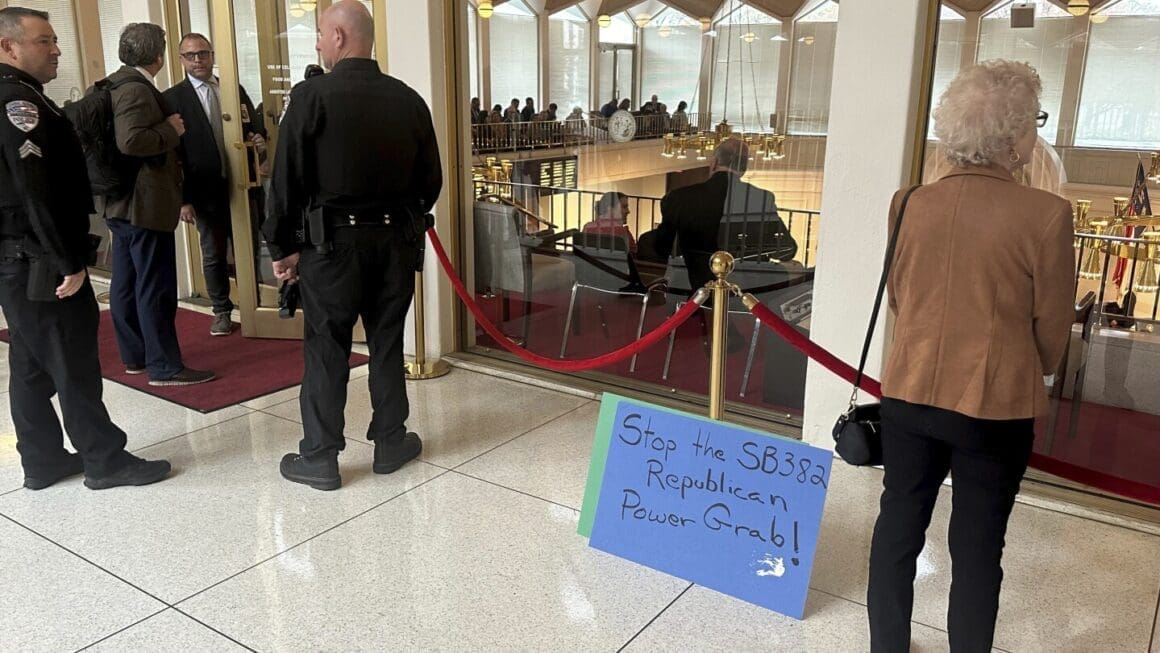Across the United States, voters are encountering a disquieting trend as state legislatures move to alter or invalidate election outcomes decided at the ballot box. Though the election concluded over a month ago, lawmakers in certain states are initiating legal and legislative maneuvers to reshape these results. In North Carolina, Republican state legislators are actively working to undercut the incoming Democratic governor’s authority. Despite voters ending the Republican supermajority and electing Democrats to major statewide offices, a series of legislative changes are underway to diminish the powers of the newly elected officials. This includes a controversial move to transfer control of the state election board away from the governor, effectively limiting the Democratic governor’s influence.
Missouri witnessed a similar tumult when voters passed a constitutional amendment safeguarding abortion rights. Yet, this decision faced immediate legislative resistance. A Republican senator proposed a new constitutional amendment to reverse these protections, aiming to reinstitute restrictions on abortion services except in medical emergencies. This legislative push highlights the broader pattern of state lawmakers intervening in voter-approved initiatives.
Meanwhile, in Massachusetts, voters empowered the state auditor to examine the legislature’s financial conduct. However, Democratic lawmakers are countering this move, arguing it infringes on the separation of powers. They have endorsed changes that would curb the auditor’s capability to execute a thorough review, effectively diluting the intended oversight.
The events unfolding post-election reveal a disconcerting trend that has been escalating over recent years. Critics label these legislative actions as undemocratic, arguing they undermine the fundamental intent of voter engagement. As Anne Whitesell from Miami University in Ohio notes, voters typically do not anticipate their decisions being overturned or disregarded. Such actions can include outright reversals or procedural delays in implementing voter-approved measures.
Ohio presents another case where voter decisions are at risk. Here, legislation under consideration could significantly alter a voter-approved measure legalizing recreational marijuana. Proposed changes include doubling the tax rate on cannabis and restricting the number of marijuana plants households can grow, effectively countering the electorate’s choice.
These legislative actions, seen across multiple states, underscore a growing disconnect between voter aspirations and legislative practices. While municipalities in Texas, such as Dallas, have approved measures to decriminalize marijuana, state officials challenge these decisions in court, asserting local provisions cannot contravene state law. Similarly, in Tennessee, legislative efforts have overridden local policies favored by city voters, illustrating a persistent tension between state and local governance.
The broader implication of these legislative maneuvers is a concerning erosion of voter trust in the electoral process. In Utah and Washington D.C., cases have emerged where legislative bodies have significantly curtailed initiatives that the electorate decisively supported, emphasizing an ongoing struggle over the division of power and democratic principles.
The increasing frequency of legislative interventions in voter-approved initiatives raises critical questions about the balance of power in democracy. As these dynamics unfold, ensuring the integrity of voter expression remains a paramount concern.
Source: Apnews














